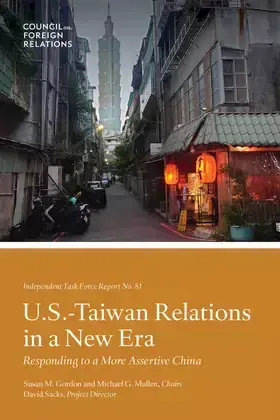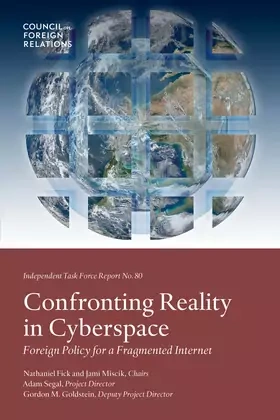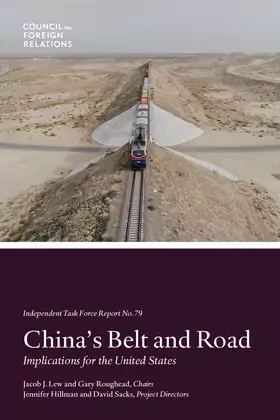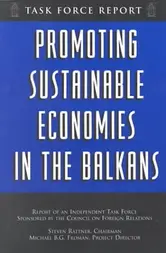Task Force Program
Recent Task Force Reports

U.S.-Taiwan Relations in a New Era
Although a conflict in the Taiwan Strait has thus far been avoided, deterrence has dangerously eroded. To maintain peace, the United States must restore balance to a situation that has been allowed to tilt far too much in China’s favor.

Confronting Reality in Cyberspace
The early advantages the United States held in cyberspace have largely disappeared as the internet has become more fragmented, less free, and more dangerous. The United States needs a new foreign policy for cyberspace to secure its economic and security interests.

China’s Belt and Road Initiative
China’s globe-spanning Belt and Road Initiative poses risks to participating countries and challenges to U.S. interests abroad. The United States should coordinate with partners to promote a secure and sustainable development agenda of its own.
CFR has launched a Task Force on Space Management Policy, chaired by retired Lieutenant General Nina Armagno, USSF, and former Congresswoman Jane Harman. Esther Brimmer, CFR’s James H. Binger senior fellow in global governance, serves as project director. Composed of thirty-five experts, the Task Force is examining challenges in low Earth orbit and beyond, places where the acceleration in human activity is most evident, in a time of heightened geopolitical and commercial competition. The Task Force aims to produce a consensus report in late 2024 that offers findings and recommendations that can help frame the future of the space economy, national security, and the sustainable use of the space domain.
-
This Independent Task Force report represents a significant step forward in deepening a bipartisan consensus for a new U.S. policy toward Cuba. While avoiding the highly politicized debate over wheth…
-
During the last ten years, Japan has undergone a difficult period of economic stagnation. Only now is the country showing preliminary signs of emerging from an economic slowdown. In response to its d…
-
Colombia’s rampant lawlessness, insecurity, and corruption represent one of the major threats to democracy and economic progress in Latin America. The stakes are that high, according to this independ…
-
The conflict in Kosovo, less than four years after the brutal civil war in Bosnia, was a wake-up call to the international community. The West and others had once again underestimated the powerful fo…
-
The U.S. approach to international conflict in the post–Cold War period—how we think about them and what actions we take—is enormously affected by America’s capabilities to quell conflicts by diploma…
-
The international community will not make real headway in crisis prevention if private creditors—and particularly large commercial banks—can escape from bad loans to emerging economies at relatively …
-
The Korean peninsula remains one of the world’s most dangerous places. While North Korea has an army of 1.2 million troops and holds Seoul hostage with its missiles and artillery, Pyongyang is in des…
-
The last of the six Balkan Wars of the twentieth century is over, but it is by no means certain that a durable peace is at hand. After vast death, destruction, and savagery lasting almost a decade, c…
 Online Store
Online Store











